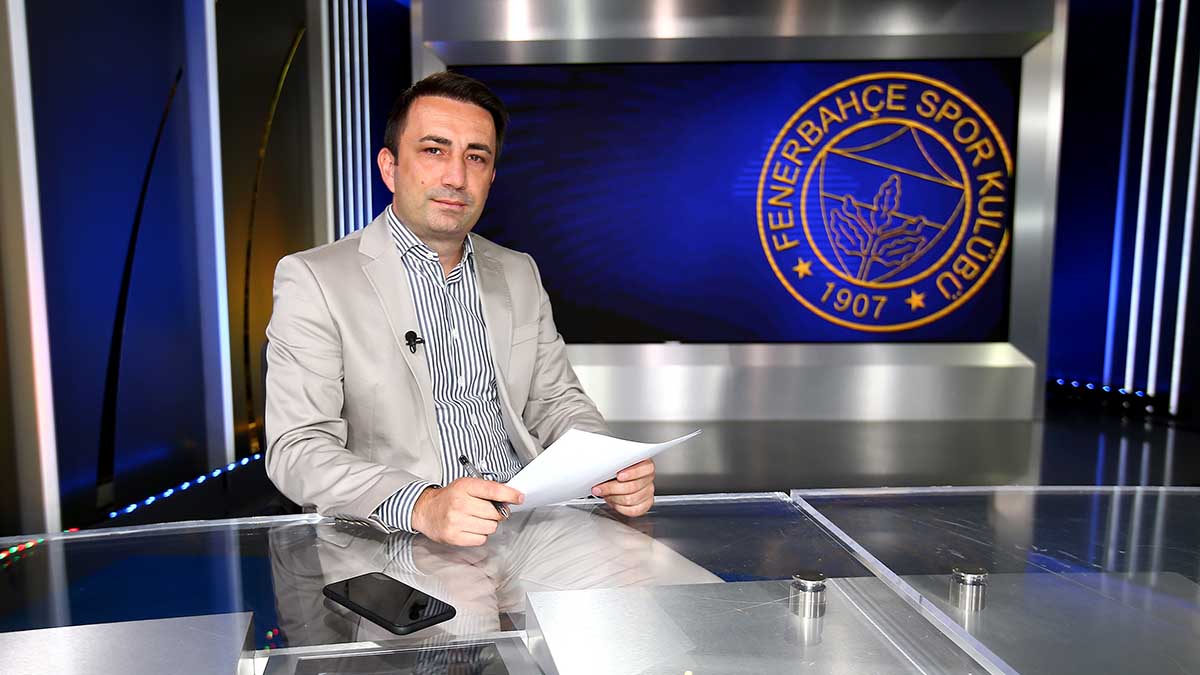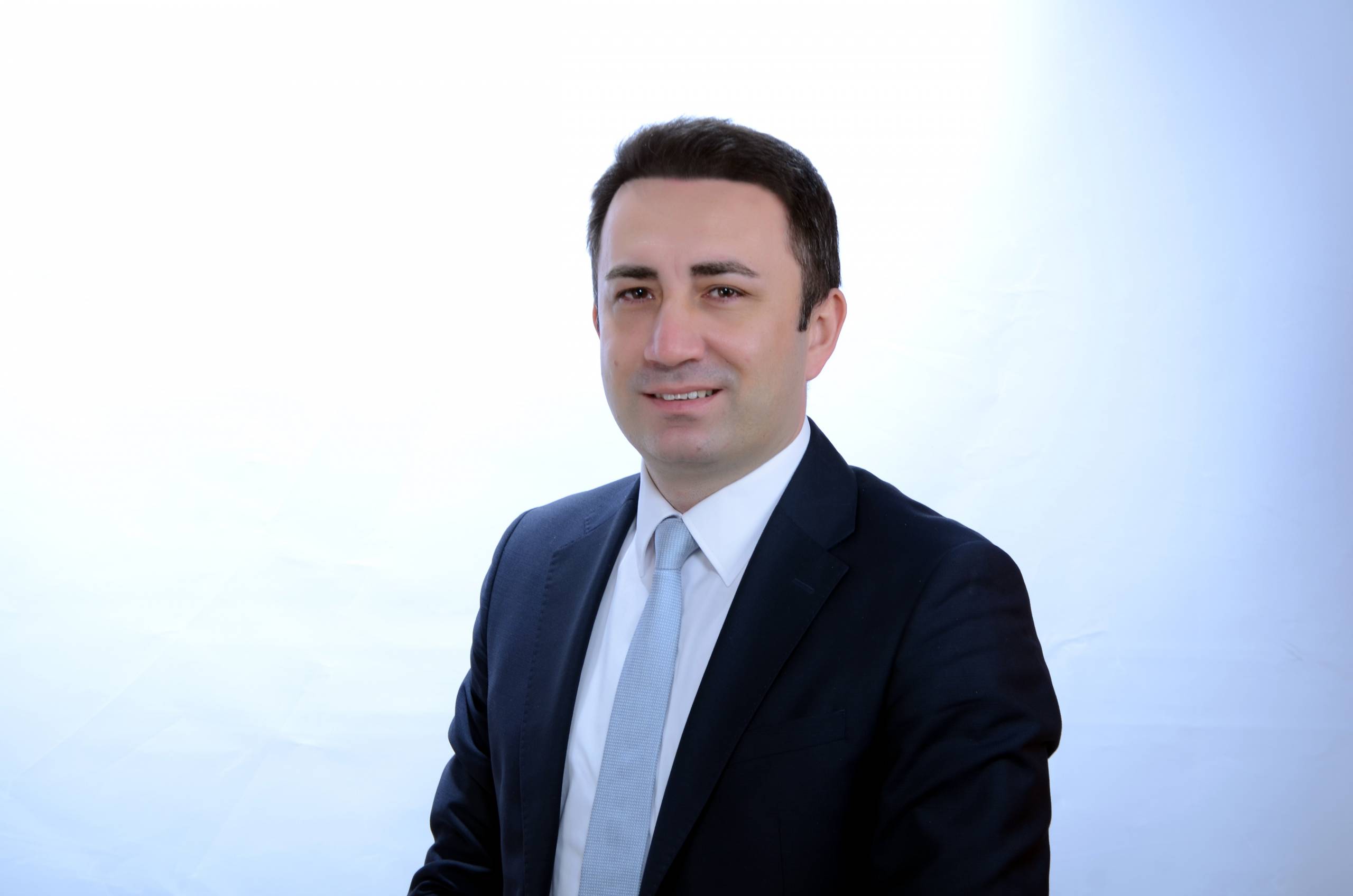World Football Summit speaks exclusively with Serdar Yildiz, CEO of SportsERP and former CFO of Turkish giants Fenerbahce. This interview features as part of the latest edition of WFS Digest, our new insider’s guide to the latest and most relevant thoughts and practises from within the football industry. You can subscribe to WFS Digest HERE.
Serdar Yildiz is the CEO of SportsERP, a company that specialises in club management software. He is also a member of the Finance Working Group at the European Club Association (ECA) and is part of the Financial Fair Play Technical Panel that is rebuilding Financial Fair Play alongside UEFA. Twenty years ago, in his first job as a finance specialist in Turkey’s largest production company, he started toying with Excel spreadsheets as a way to “automatise workload”. He realised “that many things were being done by too many people, only because they didn’t have the proper software. Actually, people started getting scared… They didn’t even let me see their screens! ‘I have kids’, they said, ‘I need to pay the loan of my house, please go away, I don’t mind my manual workload’. Sometimes they were playing jokes, sometimes they said it seriously.»
His passion for “automatising processes and connecting information,” he explains in conversation with WFS Digest, continued in different companies, until he ended up being the CFO of Fenerbahce, one of Turkey’s biggest clubs. “Turkish big clubs might not seem that huge; however, for example Fenerbahçe have around 30 million real fans not followers,” says Yildiz, “but they have no followers; they are all fans. So it’s not like other giant European clubs, for example; these clubs have, let’s say, one million fans, and then hundreds of millions of followers. Fenerbahce is different; they own around hundred official merchandising stores all around the country, exclusively devoted to the sale of Fenerbahce branded items. They also have nine sports branches, even more when you count men, women and amputee branches. They own 10 companies like merchandising stores, school, university, hotels… it’s a very big enterprise. Quite different from a Premier League club. Fenerbahce has around 1,250 employees and 1,000 sports people in the whole organisation.»
Yildiz arrived at the club in 2012 and found “that it wasn’t very professional. I started creating automated reports and I tried to build a story in the club. In those days we were building corporate governance by injecting professional talents and softwares in the company. We reached an agreement with SAP . We showed them our reports and applications that we created via MS Excel, and told them that the system should be much more than an accounting solution. And I gave them the tools I created using MS Excel, so that they could integrate it in their product; they liked it so much that they showed up at roadshows with the solutions!”
“SAP or other ERP systems are perfect for logistics and production with complex systems,” Yildiz continues, “but in sports clubs things aren’t so complicated. What is important is managing the contracts. If you manage the contracts well, you control at least 90% of a club. That’s the most important element; you have contracts in broadcast rights, sponsorship revenues, ticketing, UEFA revenues, players, transfers, agents… Fenerbahce experienced how difficult it is to build a sports-specific solution on top of a large ERP system from the beginning, so I decided to try it by myself, and they told me that they would buy it if it was useful. And in the Summer of 2015 I built a team and spent one year analysing the sector and studying the situation with developers and software architects. Then we started to build the system. We asked the biggest clubs in Europe what system they were using, and it was basically Microsoft Dynamics, sometimes SAP or a local solutions provider for accounting and finance. And for the rest they all use MS Excel spreadsheets to manage sports-specific parts. That continues to be the situation, unfortunately, today in biggest clubs. The same happened in the NBA, NFL clubs, MLS clubs – there was nothing like this in the United States sport environment.”
Which is SportsERP’s differential value? According to their founder, “you can follow all contracts automatically with data integration to many data providers, and the system shows you everything in one package: this is essential. Everybody is trying to focus on the pitch: technical analysis, tactical analysis, player scouting… sexy things which top managers like. We’re off the pitch, the only ones which are trying to build a great solution off the pitch. For the managerial side. We are now creating an app for mobile phones; even the presidents and top managers of the clubs can enter the app and see everything, in a way which they can understand easily. Easy profiles are essential for the top guys, they’re too busy. A CFO may deal with details, but a sporting director may not want to dig into all details. Therefore, simplicity and clarity are very important.. We’re building a system on top of these ERP solutions. You use SAP or Microsoft Dynamics, and we implement SportsERP on top of your system, so it can feed your accounting system automatically. Whenever you play one game, after your result appears, it will calculate all your attendance fees, the broadcasting rights, other conditional revenues or expenses… Everything. And it is transferred automatically to your system.”
“Everybody has their accounting or HR system, it’s very difficult to compete in this area; every country has their own regulations. What’s lacking is the managerial side of sports. Example: a player who has a contract whereby if he plays 20 games the contract is renewed one year automatically or he deserves bonus. And if he has played 19 games, it’s not always clear that another game can cost three or four million euros. In our system, with contracts, profiles, payments, performance stats, injuries, disciplinary etc, you can create your own KPIs and analyse players one by one online with push notifications. And create Artificial Intelligence, building a team in an innovative way. The system may tell you in the future for example the optimum price tickets for each game, and with fluctuations. It’s simply something that humans can’t do in hours. The system may also show you the sponsorship ecosystem in each country and direct you to a certain kind of company or industry. With the help of the data, the system does much more than reporting automatically; after that, the system will create really valuable knowledge, a roadmap, and assist you with most decisions.”

SportsERP have improved their software in recent years, says Yildiz, “by using the system in the biggest Turkish clubs: Fenerbahçe, Beşiktaş, Başakşehir and there are talks with Galatasaray and Trabzonspor. If rival clubs are working with you in a league like the Turkish Super League where rivalry is at a high level, it’s because there’s no different alternative in the world!
«Now’s the moment to expand our solution to Europe. It’s also valuable for federations who want to supervise clubs automatically and make a digital transformation to manage the sports ecosystem. Our strength, and weakness at the same time, is that we’re not a package solution, so when we enter a club we need to customise our tool and work together to adapt to their needs. And it sometimes takes time. But this is a very strong part of our solution, understanding and fitting the needs of each club.»
This interview features as part of the latest edition of WFS Digest, our new insider’s guide to the latest and most relevant thoughts and practises from within the football industry. You can subscribe to WFS Digest HERE.

